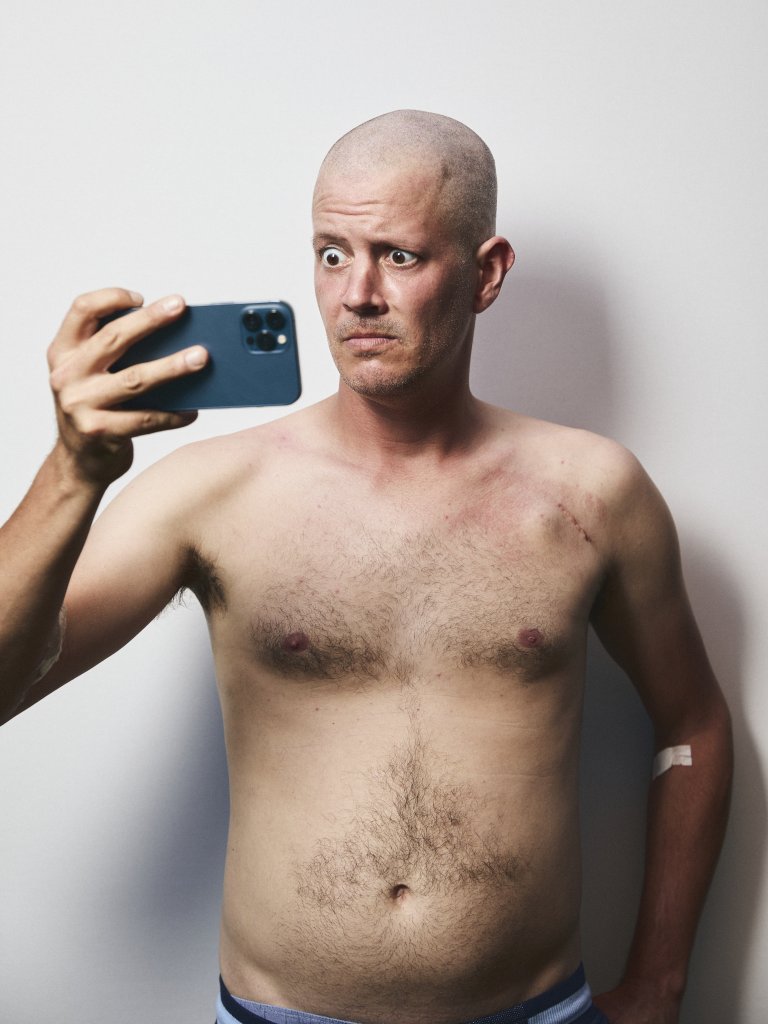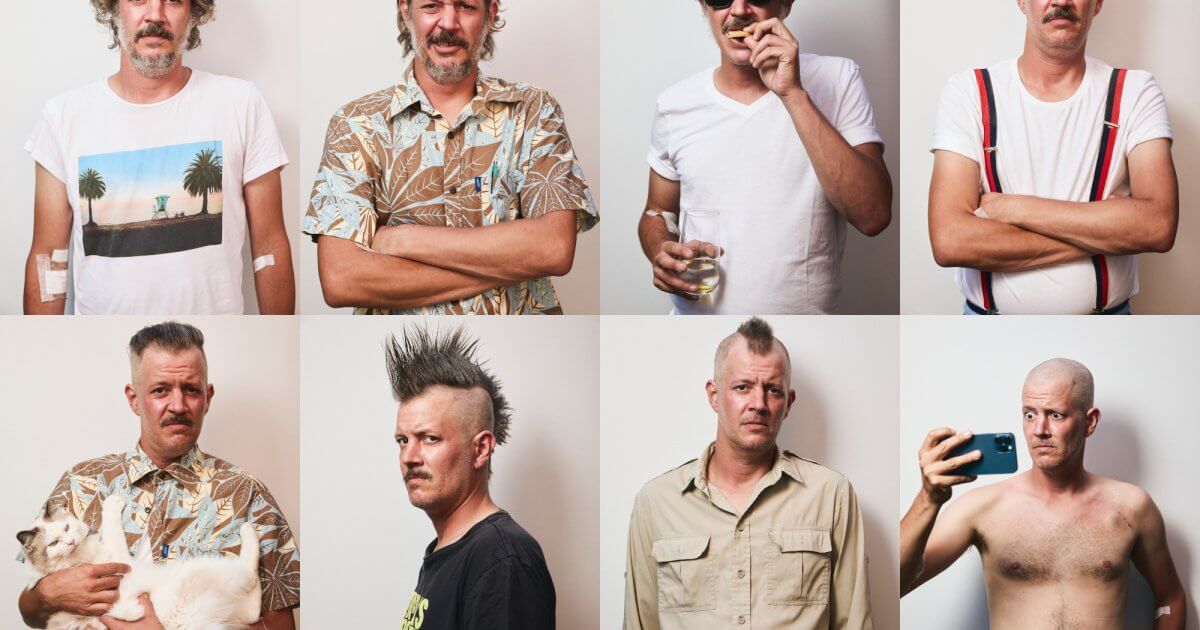Cancer Hair Loss On Your Own Terms
- When Joseph Barnes was diagnosed with testicular cancer in June, he knew he was going to lose his hair, so he decided to take matters into his own hands.
- In the United States, according to the Mayo Clinic, despite being rare, testicular cancer is the most common cancer in men between the ages of 15 and 35.
- Barnes has maintained a rather light-hearted and positive attitude about his current health situation since receiving some pretty heavy news, which doctors say is extremely important.
"Instead of finding it all over the house, (I thought) it would be more fun to do it on my terms," Barnes, who is Canadian, told SurvivorNet on Wednesday during a Zoom interview from his home in Neuchâtel, Switzerland the French-speaking part of the country.
Read MoreView this post on Instagram
He then enlisted the help of his friend and Switzerland-based photographer Sven de Almeida to document the process. In a series of photographs captured at Barnes' parents' house, his hair goes through a complete transformation getting shorter and shorter during the roughly four-hour photoshoot and by the eighth and final photo, he's left with just a shaved head.
He said he didn't ask for any specific haircut other than the short mohawk he sported in the second-to-last image of the series the same haircut Travis Bickle sported in the 1976 movie Taxi Driver, he laughed.
The photos were taken after his first round of chemotherapy; his hair hadn't begun to fall out on its own yet, so his hair began to grow back. He said he told his nurses, "I did this for nothing!"
"No, you didn't," they responded. "It's gonna come off."
Now, as he's going through his third round of chemo, he's starting to find short hairs around his home. But it's OK, he already cut it all off.
Testicular cancer survivor Mark Borja noticed his area was really lacking in awareness about the disease so he decided to do something about it.
Understanding Testicular Cancer
Earlier this year, Barnes began to experience severe back pain, which prompted him to visit his doctor.
"Things went really quickly from there," he explained on the first episode of his podcast, "Having A Ball" a light-hearted take on his diagnosis.
In June, he was diagnosed with testicular cancer that had metastasized to his lungs and spine. He was able to have surgery to remove one of his testicles soon after his diagnosis, but he had to begin chemo shortly after that for the cancer that had spread to his lungs and spine.
Related: Save A Nut!: Testicular Cancer Survivor Mark Borja Makes It His Mission To Spread Awareness
Testicular cancer is rare, according to the Mayo Clinic.
Hirslanden, Switzerland's largest private hospital group, reports that testicular cancer primarily affects young men between the ages of 20 and 40. In the United States, according to the Mayo Clinic, despite being rare, testicular cancer is the most common cancer in men between the ages of 15 and 35.
In Switzerland, about 440 men are diagnosed with this specific type of cancer every year, 85% of whom are under 50 years old at the time of diagnosis, according to Hirslanden. Testicular cancer is highly treatable, according to the Mayo Clinic, even when the cancer has spread beyond the testicle region, such as in Barnes' case.

Maintaining a Positive Outlook
Barnes has maintained a rather light-hearted and positive attitude about his current health situation since receiving some pretty heavy news.
"So far I count my lucky stars I have had literally no side effects at all," Barnes said of his chemo treatment during the first episode of "Having A Ball," which was posted to YouTube last month. "In the hospital I was fine, came out the next day, went out for lunch … I still feel fine. I don't expect this to last forever, but as long as it does, I'm pretty happy with it. I can't complain."
"I'm eating like a happy pig with cancer," he laughed.
One month later and on his third round of chemo, Barnes said he still feels great, which has largely contributed to his positive outlook on the entire situation. His doctor has even said he is "very pleased" with the progress Barnes has made the three spots in his lungs have shrunk a decent amount; the spot on his spine is also shrinking, and while not at the same rate, his doctor is delighted.
"Everyone keeps congratulating me on the great outlook I have," he told SurvivorNet. "It's easy to stay positive when you feel pretty good."
Dr. Zuri Murrell, a colorectal surgeon at Cedars-Sinai Medical Center in Los Angeles, says maintaining a positive attitude is very important.
"My patients who thrive, even with stage 4 cancer … I kind of am pretty good at seeing who is going to be OK," he previously told SurvivorNet.
"Now (that) doesn't mean I'm good at saying that the cancer won't grow," he added. "But I'm pretty good at telling what kind of patient (is) going to still have this attitude and probably going to live the longest. … Those are patients who they have gratitude in life."

Learn more about SurvivorNet's rigorous medical review process.


